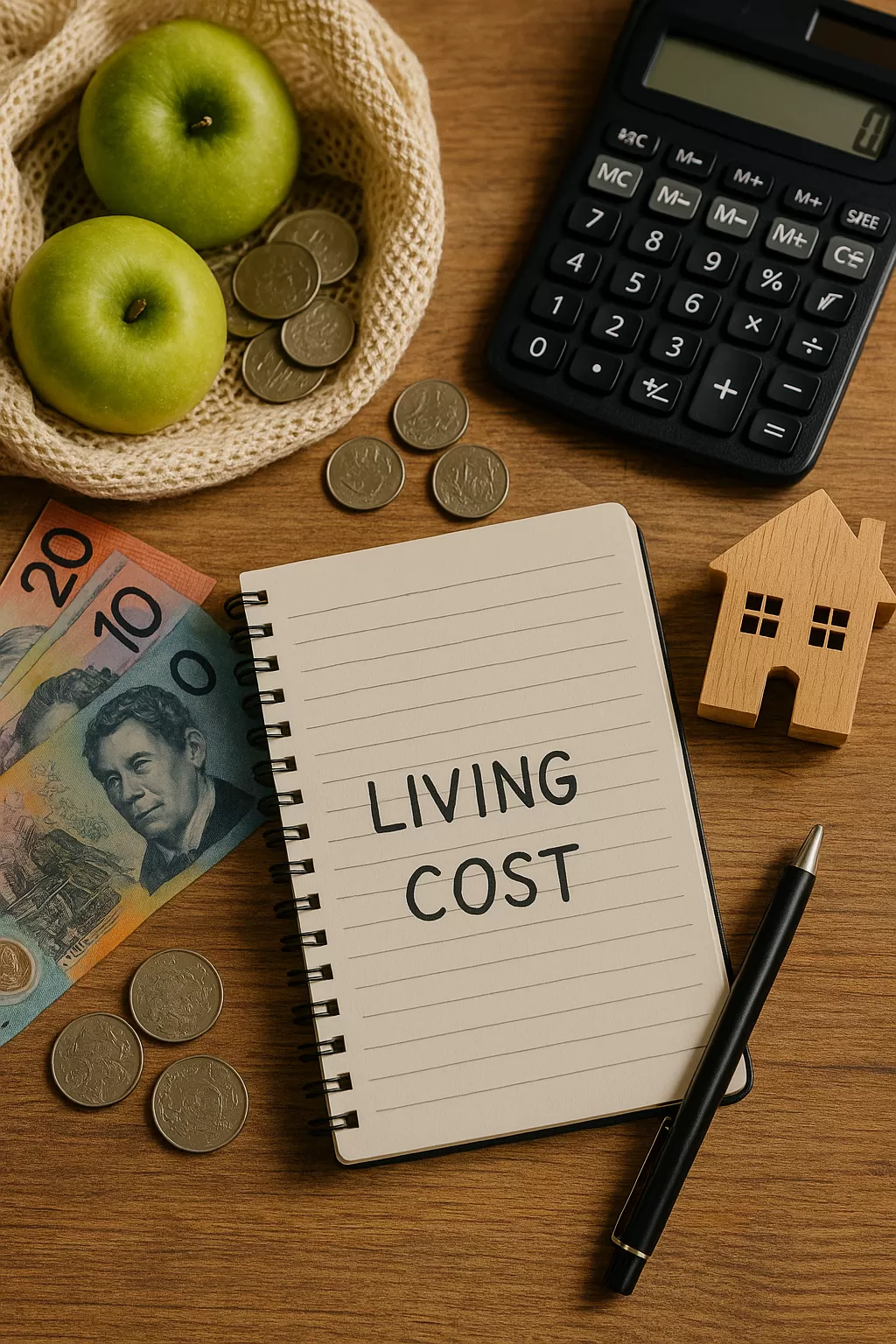What to Expect as a Student or Working Holiday Maker
Planning to live, work or study in Australia? Whether you’re enrolling in a vocational course, joining a training program, or taking time off for a working holiday, understanding the cost of living is one of the most important steps to help you settle smoothly.
At AA Academy, we work with learners and trainees from across Asia, Europe, and beyond—many of whom are moving overseas for the first time. This guide will help you plan your budget and avoid surprises when you arrive in Melbourne, one of Australia’s most liveable and student-friendly cities
Accommodation Costs in Melbourne
Housing will likely be your biggest regular expense. Costs vary depending on whether you live alone, share with others, or stay with a local family.
Typical weekly rent in Melbourne:
Accommodation Type | Weekly Cost (AUD) |
|---|---|
Shared room in a house | $160–$220 |
Private room in shared apartment | $220–$300 |
Studio or one-bedroom apartment | $350–$550 |
Homestay with meals | $300–$350 |
Tip: Check whether rent includes utilities like electricity, internet, and water. These can add $20–$40/week if billed separately.
Food and Grocery Costs
Cooking at home is the most affordable option. Melbourne offers excellent access to major supermarkets and vibrant multicultural markets.
Average weekly food budget:
- Groceries (Coles, Woolworths, ALDI): $70–$100/week
- Casual dining: $12–$20 per meal
- Coffee or bubble tea: $5–$8
You’ll also find affordable ingredients at Asian supermarkets and local favourites like the Queen Victoria Market. From Taiwanese noodles and Filipino BBQ to Indian curries and halal meals—Melbourne’s food scene is diverse and accessible.
Public Transport in Melbourne
Melbourne’s transport system includes trams, trains, and buses. All are accessed using a Myki card, which can be topped up as needed.
Typical transport costs:
- Daily fare cap (full fare): ~$10
- Concession fares (if eligible): ~$5
- Weekly pass: ~$30–$50 (zone dependent)
Travel within the Melbourne CBD is free on trams, perfect for daily commutes or exploring the city.
Phone, Internet & Other Essentials
Modern essentials are relatively affordable if you plan well.
Service | Average Monthly Cost |
|---|---|
SIM card with data (prepaid) | $20–$30 |
Shared home internet | $15–$25 per person |
Basic private health insurance | $40–$60 |
Free Wi-Fi is widely available at libraries, shopping centres, cafes, and AA Academy’s online and physical training hubs.
Budget Summary – Monthly Living in Melbourne
Expense Category | Monthly Cost (AUD) |
|---|---|
Rent (shared room) | $800 – $1,200 |
Food & groceries | $300 – $400 |
Transport | $120 – $200 |
Phone/internet | $30 – $50 |
Entertainment/shopping | $100 – $200 |
Total (basic) | $1,350 – $2,000 |
These are average estimates. You can save by cooking at home, sharing accommodation, and using transport discounts.
Practical Tips Before You Arrive
- Open an Australian bank account to avoid foreign card fees (Commonwealth, ANZ, NAB, or Westpac)
- Apply for a Tax File Number (TFN) if you plan to work
- Entry-level casual jobs in hospitality, cleaning, aged care, or retail usually pay $23–$30 per hour
AA Academy is Here to Support You
At AA Academy, we support our learners with more than just quality training. We help you with:
- Course planning and study support
- Placement assistance
- Mental health and wellbeing services
- Settlement advice tailored to your needs
Whether you’re enrolling in Certificate IV in aging support or one of our diploma pathways, our team is here to walk beside you—every step of the way.
Contact us today to get personal advice on how to start your learning journey in Australia.

